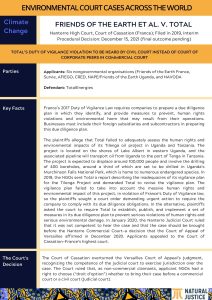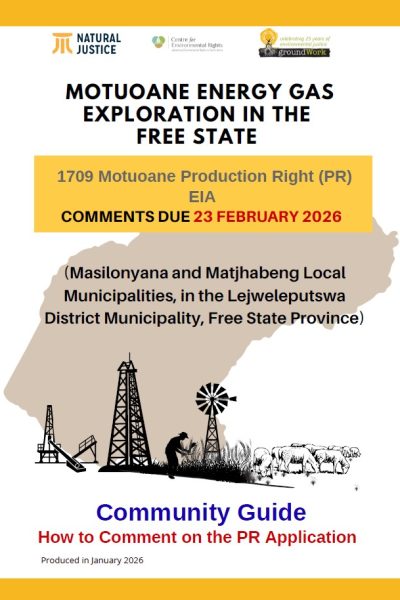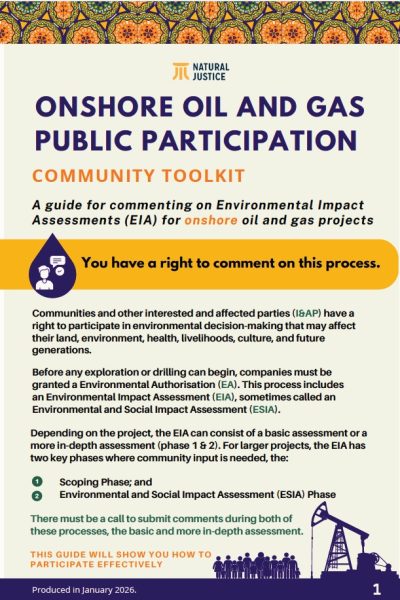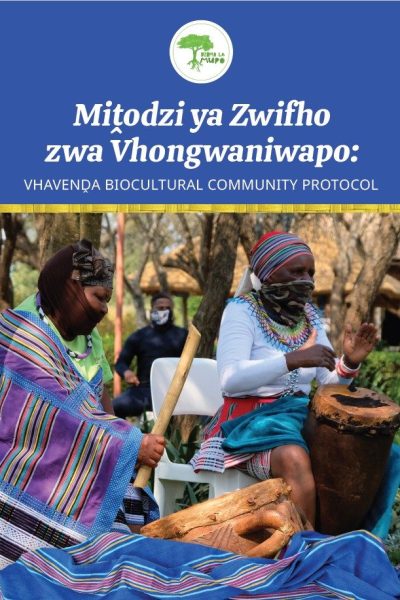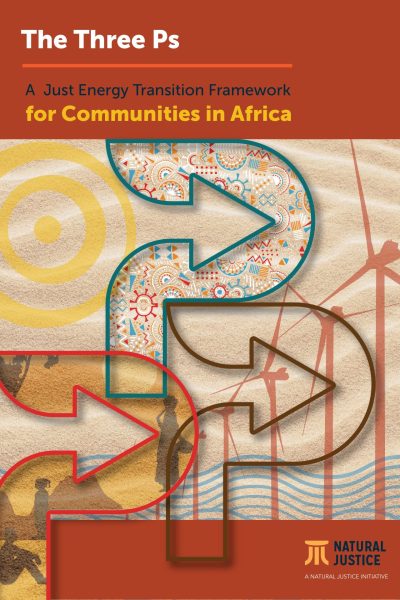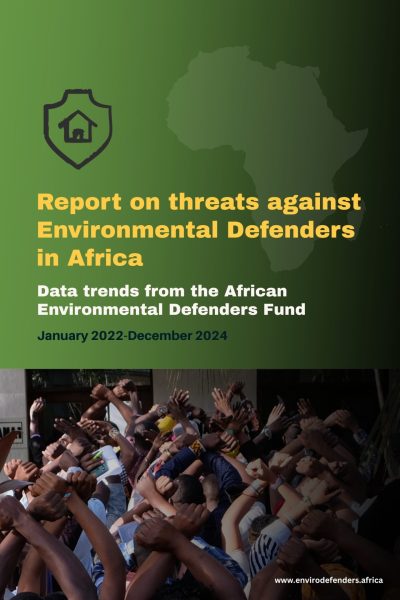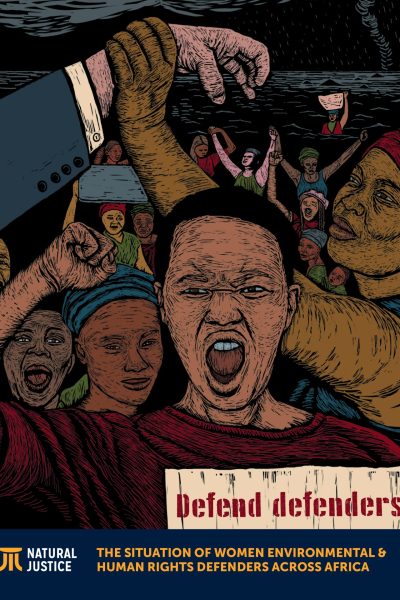Natural Justice have developed a series of summaries of significant court cases from across the world related to climate change and rights of nature. These are designed for the public, policy makers and practitioners and provide a snapshot of cases that are being brought to courts in order to advance the protection and rights of nature, including seeking ways to hold governments accountable for their international commitments to reducing carbon emissions.
Friends of the Earth et al. v. TotaL
France’s 2017 Duty of Vigilance Law requires companies to prepare a due diligence plan in which they identify, and provide measures to prevent, human rights violations and environmental harm that may result from their operations. Businesses must include their foreign subsidiaries and subcontractors in preparing this due diligence plan.
The plaintiffs allege that Total failed to adequately assess the human rights and environmental impacts of its Tilenga oil project in Uganda and Tanzania. The project is located on the shores of Lake Albert in western Uganda, and the associated pipeline will transport oil from Uganda to the port of Tanga in Tanzania. The project is expected to displace around 100,000 people and involve the drilling of 400 boreholes, around a third of which are set to be drilled in Uganda’s Murchinson Falls National Park, which is home to numerous endangered species. In 2019, the NGOs sent Total a report describing the inadequacies of its vigilance plan for the Tilenga Project and demanded Total to revise the vigilance plan. The vigilance plan failed to take into account the massive human rights and environmental impact of this project, in violation of France’s Duty of Vigilance law, so the plaintiffs sought a court order demanding urgent action to require the company to comply with its due diligence obligations. In the alternative, plaintiffs asked the court to require Total to establish, publish, and implement a set of measures in its due diligence plan to prevent serious violations of human rights and serious environmental damage. In January 2020, the Nanterre Judicial Court ruled that it was not competent to hear the case and that the case should be brought before the Nanterre Commercial Court—a decision that the Court of Appeal of Versailles affirmed in December 2020. Applicants appealed to the Court of Cassation—France’s highest court.

